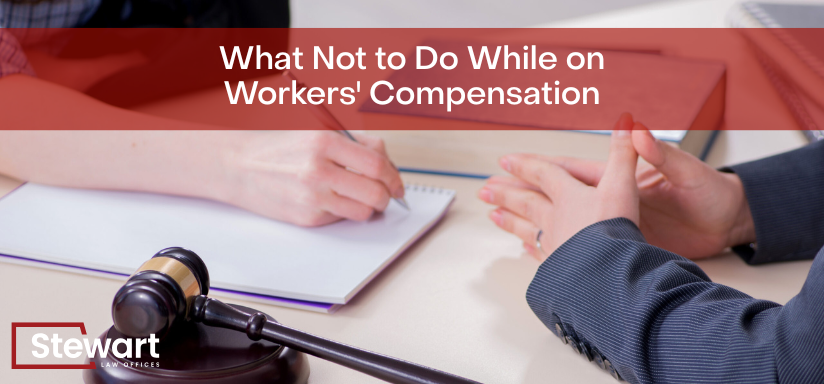Workers’ compensation is a no-fault system to cover costs associated with on-the-job injuries and illnesses. But what are you allowed to do while on workers’ comp? And, can workers’ comp stop paying you?
If you’re receiving workers’ compensation benefits, it’s essential to understand what not to do while on workers’ comp. Here’s what you should avoid while you heal:
Not Promptly Reporting Your Work Injury
Failing to report your injury within the mandated period could jeopardize your right to benefits. In North Carolina, you have 30 days to report your injuries to your employer. In South Carolina, you have 90 days.
Not Seeking Appropriate Medical Care
Visiting a doctor as soon as possible is vital. Ask your employer for a list of approved workers’ compensation doctors. Tell your provider that you were injured on the job and ask for copies of your medical reports and treatment plans. You’ll need this documentation for your claim.
Failing to Follow Your Doctor’s Orders
Once you have a treatment plan, follow it to the letter. Be sure to attend all appointments, take any medication as prescribed, and avoid returning to work until your doctor says it’s safe. Failing to follow doctors’ orders could invalidate your claim.
Not Reporting Changes in Your Condition
If your condition changes, let your provider and workers’ comp attorney know as soon as possible. Changes in your health may affect your treatment plan and claim.
Downplaying or Exaggerating Your Injuries
Always describe your injuries and symptoms honestly. Although it may be tempting to exaggerate your injuries, this is fraud. Your claim could be denied—and you could face legal consequences.
Similarly, don’t understate your injuries. Downplaying their extent could lead to inadequate treatment plans and work restrictions. Many workers find it helpful to write down their day-to-day progress, setbacks, and pain levels. This documentation is also helpful when you file a workers’ compensation claim.
Engaging in Activities that Contradict Your Claims
Following your treatment plan includes avoiding any activities that could give the impression that your injuries are not as bad as you claim. For example, don’t lift heavy objects if you’ve injured your back. Even if you’re feeling better, these activities could be used against you. Similarly, avoid posting on social media. Anything that contradicts your claim could jeopardize your benefits.
Returning to Work Too Soon
Are you ready to work, but still receiving workers’ compensation benefits? Don’t return to work until your physician clears you. While it may be tempting, especially if workers’ compensation doesn’t cover your living expenses, doing so could work against you. Instead, talk to your doctor and employer about potential light-duty options.
Accepting a Settlement Without Talking to a Lawyer
If you receive a settlement offer, be sure to get advice from a knowledgeable workers’ comp attorney. Insurance companies have a vested interest in paying as little as possible. Without an attorney, you risk settling for less than your claim is worth.
Not Working with an Experienced Workers’ Comp Lawyer
Now that you know what not to do while on workers’ comp, you’ll realize how important it is not to try to handle your case on your own. An experienced workers’ compensation attorney at Stewart Law Offices can help you navigate the complicated benefits system. When you work with us, we’ll help you meet deadlines, file the necessary paperwork, present a compelling claim, and review any settlement offers you receive. Call us today for a free consultation.

